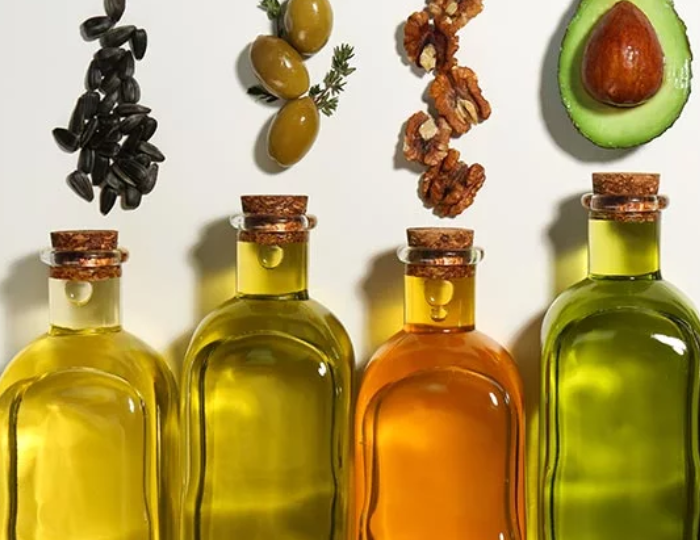
The health debate around seed oils is heating up. In a recent BBC article, scientists and health experts weighed in on the polarizing reputation of seed oils like canola, soybean, and sunflower. While some view them as inexpensive and heart-healthy cooking staples, others are calling them “inflammatory” or even “toxic,” prompting a surge in consumer skepticism. As food trends evolve and misinformation spreads quickly online, companies relying on these ingredients face increasing pressure to reformulate, rebrand, or defend their products. And where there is controversy, litigation is rarely far behind.
At Juris Law Group, we advise food and beverage brands on how to proactively reduce risk and build legal resilience in an environment where ingredient perception can change overnight. Below, we explore two critical legal strategies: how to protect your brand from rising health controversies, and how to future-proof your product portfolio for the next health-driven legal wave.
Protecting Your Brand from Ingredient Controversies
How can food and beverage companies avoid lawsuits tied to controversial ingredients like seed oils?
As consumer attitudes shift and online narratives amplify health fears, brands that fail to adjust may find themselves vulnerable to lawsuits, regulatory investigations, and reputational harm. Staying competitive means more than formulating for taste and price—it requires a proactive legal strategy that anticipates scrutiny and aligns marketing with evolving science. Here’s what companies can do:
1. Common Legal Claims That Arise
- False or misleading advertising: Claims that products are “heart healthy” or “natural” may be scrutinized if ingredients like seed oils fall out of consumer favor or contradict emerging scientific consensus.
- Failure to warn: If an ingredient is linked to potential health risks, plaintiffs may argue that companies had a duty to disclose those risks—especially when targeting health-conscious consumers.
- Unfair competition or consumer fraud: If a brand uses aggressive health marketing while ignoring scientific controversy, it may attract regulatory attention or lawsuits under state consumer protection laws like California’s UCL or CLRA.
2. Risk Mitigation in Marketing and Labeling
- Pre-clear marketing language with legal counsel: Avoid unqualified health claims, especially regarding ingredients subject to public debate.
- Include context or disclaimers: When discussing nutritional benefits, clarify with phrasing like “when consumed as part of a balanced diet.”
- Train marketing teams on compliance basics: They should understand what qualifies as a structure/function claim vs. a disease claim.
3. Learn from Past Controversies
Consider the legal waves that followed ingredient controversies:
- Trans fats: Once widely used, they were eventually banned, and many companies faced lawsuits for failing to reformulate or disclose risks.
- High-fructose corn syrup: Brands using it were accused of misleading health marketing.
- Natural sugar substitutes: Products containing stevia or monk fruit have faced class actions over allegedly deceptive labeling.
4. Prioritize Scientific and Legal Collaboration
- Conduct regular ingredient reviews: Evaluate scientific literature and litigation trends.
- Have legal counsel involved early: Include them during product development, especially when making any nutritional or health-related claim.
Future-Proofing Against the Next Health Controversy
What steps can brands take today to avoid being caught in tomorrow’s ingredient controversy?
Forward-thinking companies treat regulatory counsel as a strategic asset—not just a last-line defense. Here’s how to build resilience:
1. Build Internal Ingredient Vetting Protocols
- Develop a scientific advisory process: Evaluate ingredient safety, consumer sentiment, and regulatory status before R&D approval.
- Document due diligence: Keep records showing you monitored risks, which helps defend against future claims.
2. Engage Legal Counsel Early in Product Development
- Review formulations from a liability standpoint: This includes ingredients, source, claims, and expected shelf life.
- Address international regulatory risks: If your brand is global, watch for bans or label restrictions abroad.
3. Audit Your Supply Chain for Legal Landmines
- Review vendor indemnity clauses: Make sure suppliers will backstop your risk if they supply problematic ingredients.
- Ensure accurate ingredient disclosures: Mislabeled inputs can open the door to both consumer and regulatory actions.
4. Protect New Formulations Through IP
- File patents or trade secrets for reformulated products: If you’re removing seed oils or replacing them with alternatives, consider protecting that innovation.
- Use trademark law to reposition: If you’re shifting to a seed-oil-free image, brand protection becomes critical.
Final Thoughts
Ingredient controversies are no longer speculative—they’re a proven litigation risk. As seen with trans fats, artificial sweeteners, and now seed oils, changing consumer sentiment can lead to real-world liability. Staying ahead of the curve means routinely evaluating your product line not just for market performance, but for legal defensibility.
At Juris Law Group, P.C. we help clients build the legal infrastructure needed to market confidently and respond effectively to emerging health narratives. From proactive claim review to supply chain compliance and product reformulation strategy, we partner with food and beverage brands to transform regulatory complexity into competitive advantage.
In today’s fast-moving market, waiting for controversy to hit before taking action is a gamble. Strategic planning now is the best safeguard against tomorrow’s class action.
For tailored guidance on product liability and regulatory compliance, contact us or follow us on LinkedIn.
FAQS
Question: Are companies required to remove seed oils from their products?
Answer: No, but if companies make health claims that contradict evolving science, they may face legal risks under false advertising or consumer protection laws.
Question: Can I be sued for using an ingredient the FDA still considers safe?
Answer: Yes. FDA approval does not immunize you from lawsuits—especially class actions based on marketing, omissions, or state consumer laws.
Question: What’s the best way to reformulate and avoid liability?
Answer: Start with scientific review, involve legal early, and protect any proprietary changes through IP. Rebranding to emphasize health shifts should also be legally vetted.
Question: Does this only affect seed oils?
Answer: No. Any ingredient with rising health concern—like artificial sweeteners, emulsifiers, or flavorings—can spark similar legal issues. Seed oils are just the latest spotlight.
Question: What is the risk of doing nothing?
Answer: Waiting until litigation or regulatory warning letters arrive leaves your brand exposed. Proactive review and strategy now can save millions later.
Question: How do I evaluate if my ingredient is at risk of controversy?
Answer: Monitor consumer sentiment, scientific research, and legal trends. Regular risk audits and cross-functional reviews with legal and R&D are key.
Question: What role does supply chain documentation play in avoiding liability?
Answer: A significant one. Inaccurate or missing disclosures from vendors can expose your brand to liability. Require indemnity provisions and audit documentation regularly.
Question: Should we change our marketing language in response to emerging ingredient concerns?
Answer: Yes. Update claims and labeling to reflect current science and regulatory expectations, and ensure disclaimers provide appropriate context.


